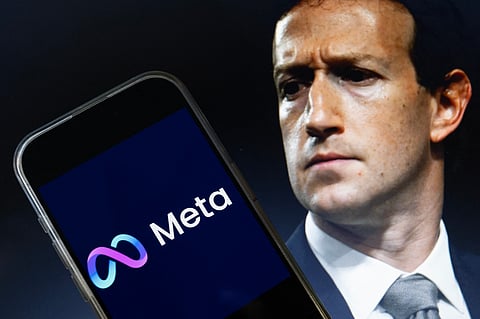Meta creates secret 'superintelligence' lab to pursue beyond-human AI
Zuckerberg assembling team of top AI researchers to compete in rapidly accelerating race

Meta Platforms Inc. is reportedly establishing a new, secretive artificial intelligence research lab dedicated to achieving “superintelligence,” a hypothetical AI system that surpasses human cognitive capabilities across all domains.
This strategic move signals Meta’s intensified efforts to compete in the rapidly accelerating AI race, particularly against rivals like OpenAI and Google.
Reports say CEO Mark Zuckerberg is personally spearheading the initiative, assembling a team of around 50 top AI researchers and engineers, internally referred to as the “superintelligence group.” This dedicated unit reflects a significant restructuring of Meta’s AI efforts, moving beyond broader AI research under its Facebook AI Research (FAIR) division to a more specialised focus on Artificial General Intelligence (AGI) and, ultimately, superintelligence.
Recruitment drive and investment
To staff the new lab, Meta is offering highly competitive compensation packages, with reports of seven- to nine-figure offers to attract talent from leading AI companies. Furthermore, Meta is in advanced talks to invest over $10 billion in Scale AI, a startup specialising in data labelling and model evaluation services, with Scale AI founder Alexandr Wang expected to join the new lab. This potential investment would mark Meta’s largest external AI investment to date.
Motivation and goals
The impetus behind this new lab appears to stem from Zuckerberg’s reported frustration with Meta’s perceived shortcomings in AI progress, including the mixed reception of its Llama 4 model and delays in the larger “Behemoth” model.
The audacious goal is to outstrip other tech companies in achieving AGI, with the long-term vision of integrating these advanced AI capabilities into Meta’s extensive suite of products, including social media platforms, communication tools, chatbots, and AI-powered devices like Ray-Ban smart glasses.
What is superintelligence?
Superintelligence, also known as Artificial Superintelligence (ASI), is a theoretical form of AI that would far exceed human intelligence in all aspects, including problem-solving, reasoning, creativity, and emotional understanding. It represents the highest stage of AI development, going beyond “narrow AI” (current AI systems specialised in specific tasks) and Artificial General Intelligence (AGI), which aims to replicate human-level cognitive abilities. Proponents believe ASI could lead to unprecedented advancements in various fields, from scientific discovery to global problem-solving.
Internal dynamics and industry context
The formation of this new lab raises questions about its integration with Meta’s existing AI teams, particularly concerning the role of long-time AI lead Yann LeCun, who has expressed scepticism about some current AI approaches. Meta’s approach of self-funding its AI development through its robust advertising business contrasts with the external funding models of some competitors, potentially offering greater autonomy in pursuing long-term AGI research.
Challenges and perspectives
While the pursuit of superintelligence promises transformative potential, it also comes with significant challenges and ethical considerations. These include ensuring the safety and alignment of superintelligent systems with human values, addressing potential job displacement, and navigating the profound societal implications. Meta’s Chief AI Scientist Yann LeCun has publicly stated his belief that humans will maintain control over superintelligent AI, envisioning a “boss-staff relationship” where AI serves human-given tasks. However, the broader AI community continues to debate the timelines and control mechanisms for such advanced AI.



